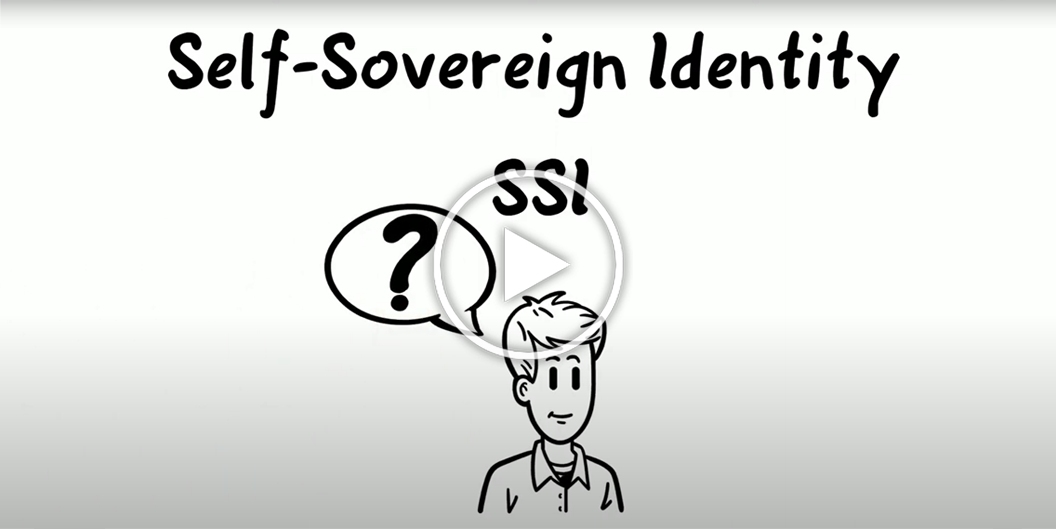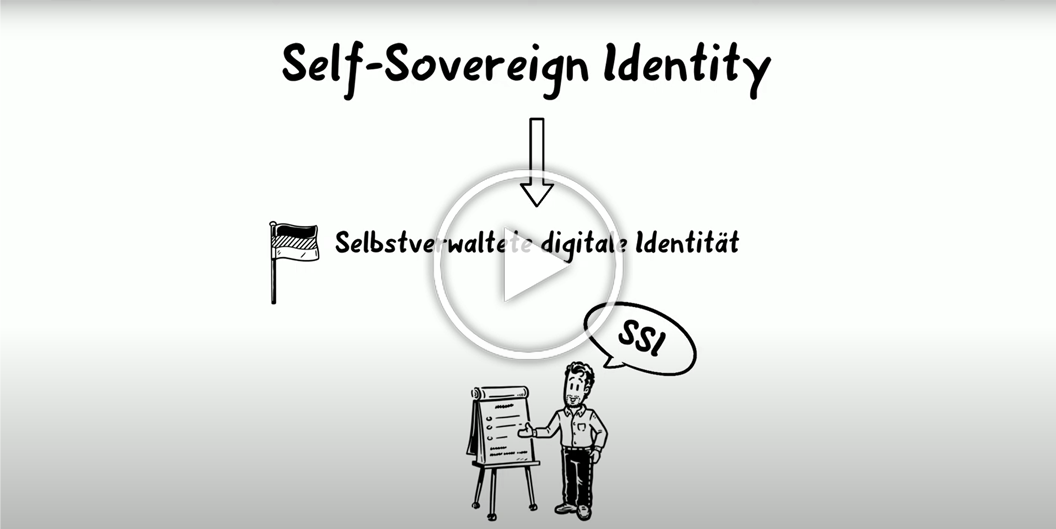Main section
How digital, verifiable credentials are about to make our lives easier
Do you remember the last marathon application process you had to endure to get a job or a flat? Debt collection register extract, proof of education or training, identity information – the list of required documents seemed endless. How many of these documents do you have on hand in digital form? Probably not many. The process entailed visits to government offices, stacks of paper and a whole lot of stress.
The people accepting these credentials (often business customers, in this case) also face a challenge: how can they guarantee or verify that the documents submitted are genuine and up-to-date?
Digital, verifiable credentials will make your life easier whether you’re a private individual or a business customer: no stacks of paper, no visits to the authorities, and above all, no more doubts about the authenticity of the credentials. You’ll find out how it all works in this article.
What are digital, verifiable credentials?
The concept of self-sovereign identity, or SSI, forms the basis of digital, verifiable credentials. Contrary to the name, SSI is much more than a mere confirmation of identity. It revolutionises all types of credentials, including educational certificates, confirmations of credit rating or place of residence, driving licences and membership cards. In short, all the documents you use in your day-to-day life.
These digital credentials are issued by a trusted party such as a government agency, educational institution or corporation. A decentralised trust infrastructure makes it possible to verify and confirm the authenticity of the credentials at any time.

How will digital, verifiable credentials revolutionise identity?
Today, our credentials are divided across different formats: physical cards in our wallet, papers in a folder or PDFs in a digital storage repository. If you want to engage in a business transaction like an application for a flat, for example, you first have to collect all the required documents and upload them for someone to review – or even send them by post! Digital, verifiable credentials are making this process a thing of the past. A wallet app on your smartphone allows you to share up-to-date digital credentials easily and securely. As the user, you always maintain control over what data is shared and with whom.
The trust infrastructure also now makes it possible to issue digital credentials for longer periods of time. For example, you can use debt collection register extracts and other important documents until they expire (whether over time or due to changes to their content). This saves you time and effort, while also increasing efficiency.
Your benefits as a business customer
-
You can issue verifiable digital credentials to your customers at any time.
-
You can make your customers’ lives easier by offering them fully digital processes.
-
Submitted credentials are quick and easy to verify.
-
Your employees can keep your digitalised documents up-to-date and share them with just one click. Repeated verification is no longer a problem and compliance is improved.
-
SSI only shares selected attributes – in other words, only the necessary information. This complies with the principle of data economy.
What do digital credentials have to do with e-IDs?
Following the failed referendum on the proposed Federal Act on Electronic Identification Services (e-ID) on 7 March 2021, the Swiss Federal Council tasked the federal administration, in consultation with business, educational institutions and the cantons, with developing a high-level concept for a nationwide e-ID. Based on the results of the public consultation, the Federal Council defined guidelines for a future nationwide e-ID on 17 December 2021. A nationwide e-ID will be issued based on the self-sovereign identity (SSI) approach. Users will be able to use the e-ID as proof of identity on the internet. Along with the e-ID or electronic identity, the government intends to foster development of an entire e-ID ecosystem in which additional official credentials such as extracts from the debt collection register or criminal register, driving licences, etc. can be issued based on the SSI approach. This approach aims to allow all non-governmental businesses and organisations to issue and verify digital credentials. The new e-ID is expected to launch in 2026 at the earliest.
What role will SwissSign play?
Digital, verifiable credentials are the next step in the evolution of identity. They offer numerous advantages for all parties and will no doubt contribute to making identities and credentials more secure and easier to share and manage in the future. As a trust service provider and Swiss Post’s data security specialist, SwissSign will use its expertise to support the upcoming e-ID ecosystem and the use of digital, verifiable credentials. SwissSign will contribute to Switzerland’s ability to introduce digital, verifiable credentials and make use of their potential as quickly as possible.





